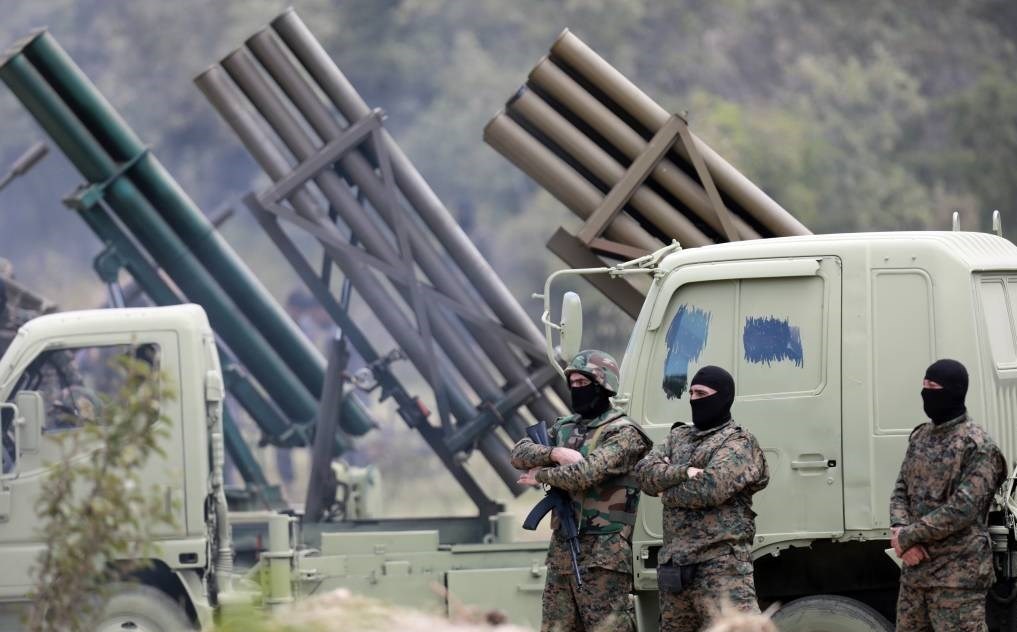Israel conducted a commando raid in Syria on Sunday, targeting a Hezbollah missile production facility near the Lebanese border, killing several individuals at the site, according to U.S. and Western officials.
The operation involved Israeli special forces, who rappelled from helicopters to seize materials from the missile facility, the officials said.
Due to the mission’s complexity and the need to gather intelligence from the covert weapons site, ground forces were deployed. The officials noted that there were no Israeli casualties during the raid.
The mission also included airstrikes on the expansive Scientific Studies and Research Center, located near Masyaf in northwest Syria. Syria’s state news agency, SANA, reported on Monday that the attack resulted in 18 deaths and numerous injuries.
The Syrian Observatory for Human Rights, a U.K.-based group that monitors the conflict, indicated that the strikes hit a scientific research institute focused on developing precision-guided short- and medium-range missiles.
Prior to the strikes, Israel informed senior U.S. officials. On Sunday, Gen. Michael E. Kurilla, head of U.S. Central Command, visited the Israel Defense Forces’ Northern Command war room, where he reviewed Israel’s military plans concerning Lebanon, according to the IDF.
Experts, Israeli officials, and the U.S. government have identified the facility as a hub for weapons research and development, with support from Syria’s ally, Iran.
The center has been linked to the development of chemical, biological, and possibly nuclear weapons, as well as missiles for Hezbollah, the Iran-backed Lebanese militia engaged in conflict with Israel.
Israel has targeted Masyaf multiple times in the past. In 2018, an Israeli strike killed a Syrian scientist who worked on precision-guided munitions at the facility.

Hezbollah Missile Program (Photo: Tasnim News Agency)
The recent airstrikes, spanning late Sunday into early Monday, marked one of the most lethal attacks in Syria in recent months.
In addition to the 18 deaths, SANA reported that 37 people were injured, six critically. The strikes also damaged local roads and infrastructure, including water, power, and telephone lines.
While the facility had historically been linked to chemical weapons production, officials stated that no such activities had taken place there in recent years.
Instead, it had been focused on producing precision-guided missiles for Hezbollah, raising concerns among analysts about the group’s enhanced ability to target northern Israel with greater accuracy.
Charles Lister, director of the Middle East Institute’s Syria and counterterrorism programs, shared additional details of the Israeli operation on his “Syria Weekly” Substack.
He explained that an initial wave of Israeli airstrikes destroyed four Syrian military positions around Masyaf, including an air defense site.
A second wave targeted a building within the complex connected to underground tunnels, Lister added.
In the operation’s third phase, several Israeli helicopters crossed into Syrian airspace and deployed dozens of commandos near the bunkers.
As the Israeli forces approached the bunkers, Israeli drones engaged Syrian troops rushing to defend the site, Lister said.
Officials familiar with the raid explained that the primary objective of the ground assault was to demolish the facility, a task that couldn’t be accomplished by airstrikes alone. A secondary goal was to gather intelligence on Hezbollah’s weapons development.
Lister noted that the Masyaf facility and the nearby town of Mahruseh have played a crucial role in Syria’s production of ballistic missiles, cruise missiles, barrel bombs, and thermobaric munitions, the latter of which are specialized explosives typically used to destroy structures and tunnels.
